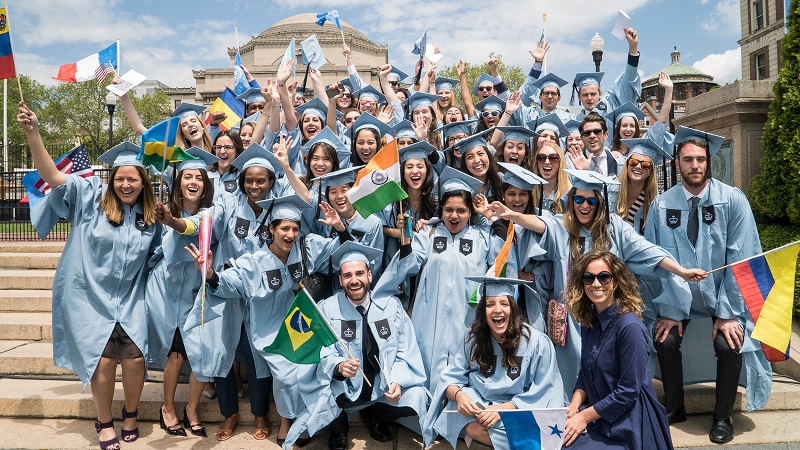Four Democrats have teamed up to introduce a bill in the Senate that would allow international STEM students to work in the U.S. upon their graduation from college.
The Keep STEM Talent Act, introduced by Senators Dick Durbin (D-IL), Richard Blumenthal (D-CT), Kamala Harris (D-CA), and Amy Klobuchar (D-MN), seeks to exempt international STEM graduates from restrictive green card caps that serve as a barrier in obtaining U.S. citizenship.
The bill aims to propel the economy by retaining such graduates who want to work in the country after they complete their advanced degrees.
“America should always be looking to maintain a strong STEM workforce because it will help us compete in the global economy,” Durbin said in a statement. “By denying international students with STEM degrees a chance to continue their work in America, we are shipping their talents overseas and won’t see the positive impacts of their American education. We think this bill represents a common-sense idea that the Senate should take seriously.”
If the act is passed, STEM graduates could obtain permanent residency by securing employment in the U.S. in a field related to their degree, at a rate of pay above the median wage level for the position in the geographic area of employment.
The bill also exclusively mentions that U.S. workers won’t be adversely affected by the hiring of foreign workers.
“America is a country created and sustained by immigrants, whose contributions are a pillar of our nation’s competitive edge in the global economy,” Klobuchar said in a statement. “We should be working to keep students pursuing advanced STEM degrees here in the United States, and this bill will ensure that those who want to bring their talent to our country can succeed here.”
Lately, higher educational institutions across the country have witnessed a decline in the enrollment numbers of international students. According to an Open Doors Report on International Educational Exchange, U.S. institutions saw 115,841 new international undergraduate enrollments during the 2016-2017 academic year, a decline of 3,421 students than the year before. The following year saw an even further slump with just total 108,539 enrollments, another decline of 7,302 students.
These dwindling enrollment numbers even forced the University of Illinois at Urbana-Champaign to buy a $425,000 insurance plan after a sudden drop in its enrollment of Chinese students.
Reports attribute this declining enrollment to various factors, including the delays and denials of visas, changing preferences of international students and the present political and social climate in the U.S.
China Issues Warnings to Students Studying Abroad at U.S. Institutions

